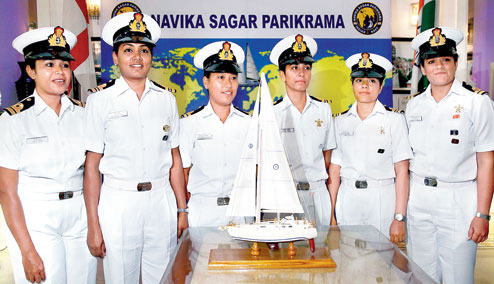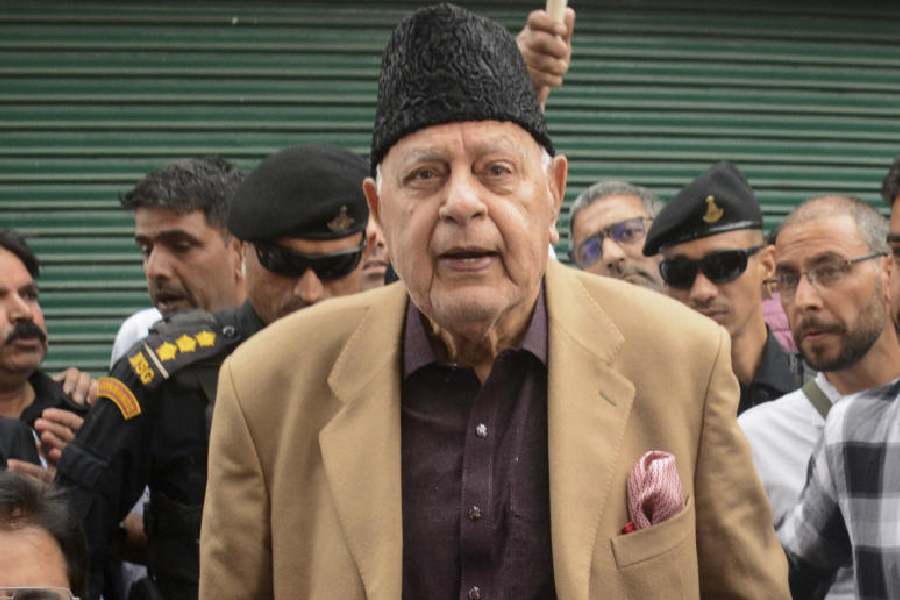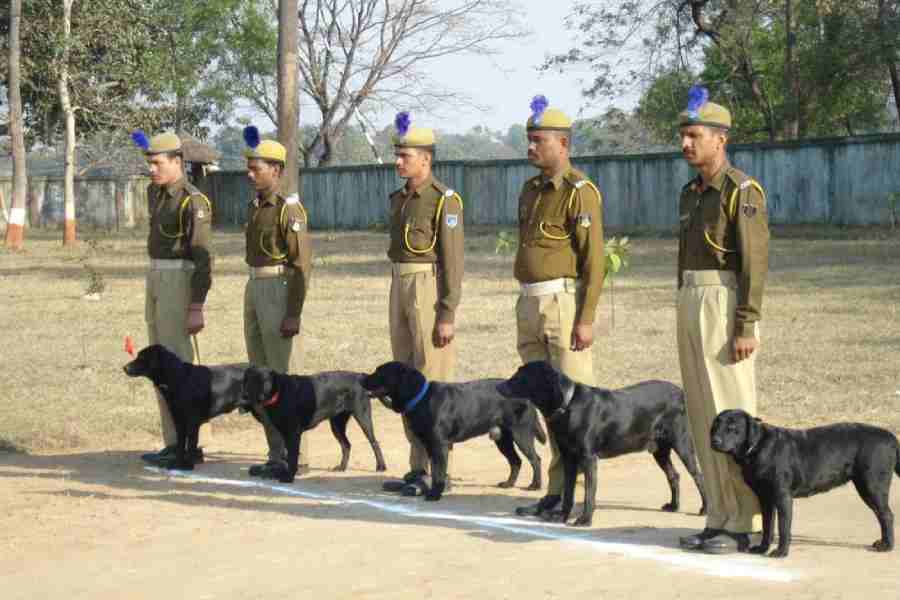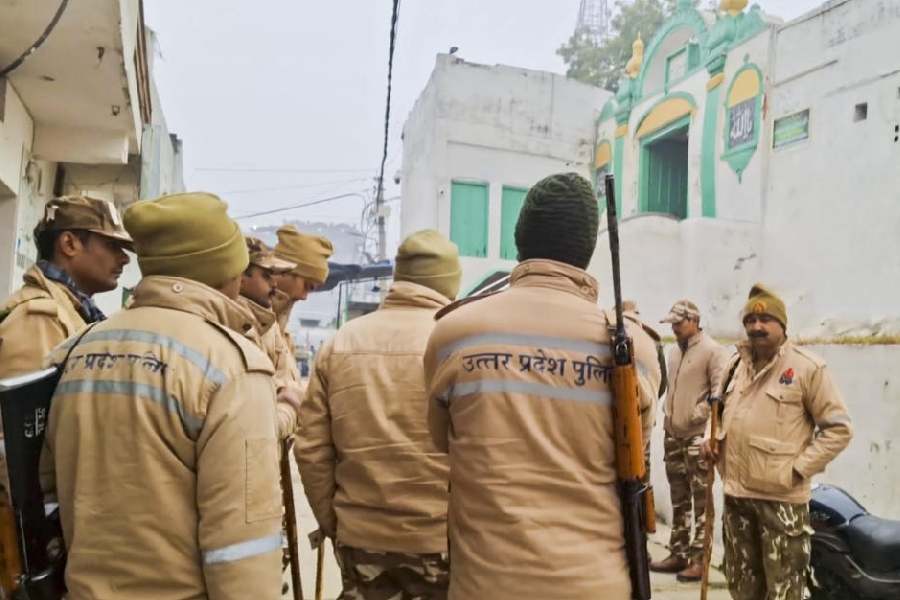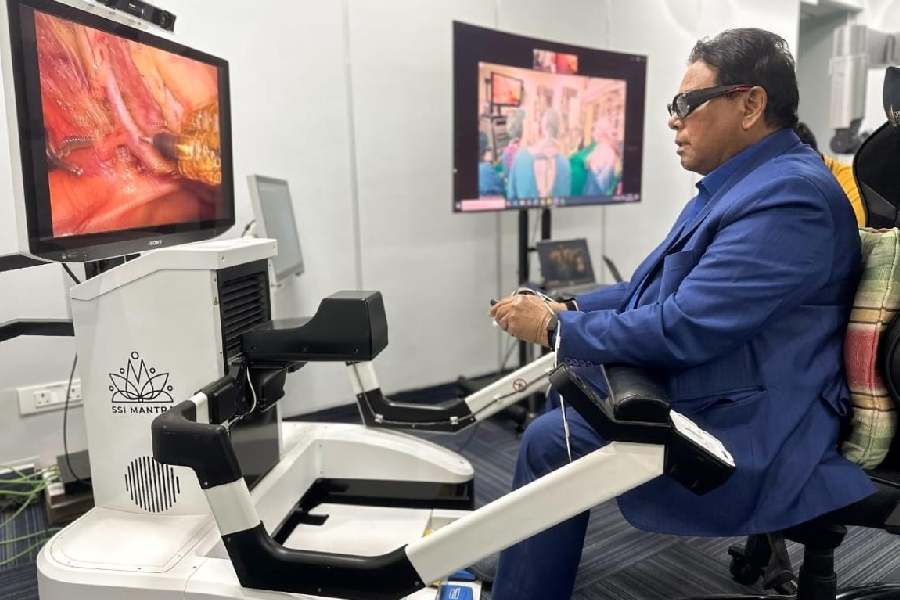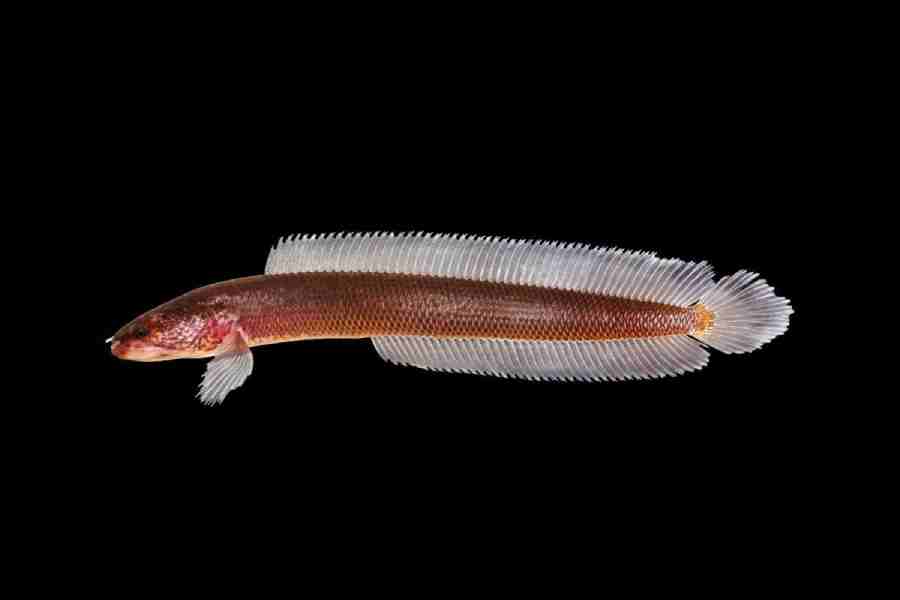
New Delhi, Aug. 17: Vartika Joshi has crammed her laptop with movies and has picked books to carry for an eight-month stint riding sea waves. But those idyllic-sounding distractions are only to keep her sane. For the most part, she'll be leading a mission unlike any undertaken by Asian women.
Joshi is one of six women officers from the Indian Navy who will set off from Goa in the first week of September to circumnavigate the earth on a sailing boat in a bid to create history and lend greater heft to India's burgeoning naval ambitions.
The first Asian women's team ever to attempt such an adventure, the six - from different corners of the country - will bounce across some of the roughest seas in the world, stopping just four times on the way. They will crisscross the equator twice and the international dateline once.
No military women's team anywhere in the world has circumnavigated the earth till now, the navy said today as Joshi's group - all in their 20s - sat before clicking cameras, clearly more accustomed to the sea than to flashbulbs.
The team has trained for the past three years with the now retired Captain Dilip Donde, the first Indian naval officer to circle the earth in 2009-10, and has sailed increasingly long distances as part of their preparation.
Only one other Indian officer, Cdr Abhilash Tomy in 2012-13, has circled the earth - he did it without stopping anywhere, the second in the world to do so.
But the adventure isn't about showcasing endurance alone. It's a reminder of the navy's slow but steady embrace of women officers in sailing roles - a handful already flies jets but Joshi will be the first to captain a vessel.
Equally, the mission is India's latest demonstration of its increasing maritime capabilities and aspirations to the world and its troubled neighbourhood.
"You can climb a mountain to test your endurance, but what we're doing here is looking not inland but outwards to the world, and training young officers to think that way," Tomy told The Telegraph. "You do that for a generation, and you will be a major naval power."
The officers - Lt Cdr Joshi from Rishikesh, Lt Cdr Pratibha Jamwal from Kullu, Lt Cdr Swathi P. from Visakhapatnam, Lt Aishwarya Boddapati from Hyderabad, Lt Vijaya Devi from Moirang Kwakta Santhong in Manipur and Lt Payal Gupta from Dehradun - will set off southeast.
Their sail boat, the Indian Navy Sailing Vessel Tarini, will carry 600 lt water, a reverse osmosis plant and dry supplies for food that the officers will use to cook, Joshi told this newspaper. The vessel has no refrigerator.
They will sail first to Freemantle in Western Australia, a journey expected to take 37 days. Their next stretch will be shorter - 22 days - before they stop at Lyttleton in New Zealand, but the Tasman Sea is notoriously rough.
They will confront their toughest test next, when they sail for 35 days from New Zealand to Port Stanley in the Falkland Islands, below the southern tip of South America - the closest point to Antarctica.
There, Donde said - recalling from his own experience - temperatures are between 4-5 degrees C, the winds are howling, and the waves are twice the size of their counterparts in the Indian Ocean.
"If the waves there are less than 10 feet high, it's a good enough day to celebrate by frying some dosas," Donde said.
From the Falkland Islands, the women will sail to Cape Town - a journey expected to take 28 days - before their final leg back to Goa, which is estimated to take 42 days.
The officers will hope to build on a relatively young legacy. The navy came up with the first of its circumnavigation initiatives - called Sagar Parikrama - in 2007, and commissioned Aquarius India, a Goa-based company, to develop the boats for the project indigenously.
"It's a fully 'Made in India' initiative," said Vice Admiral A.K. Chawla, the chief of personnel of the Indian Navy.
Donde and Tomy sailed on the INSV Mhadei - with a wooden frame sandwiched between layers of fibreglass - and it was on that boat the six women officers also trained initially. In February 2016, Joshi's team sailed on their maiden independent voyage from Visakhapatnam to Goa.
Then, they tested themselves with a sortie from Goa to Mauritius and back. Next, they sailed from Goa to Cape Town and back. The Tarini - designed exactly like the Mhadei - was inducted in February 2017, and the officers tested their new boat with a series of sorties - from Goa to Mumbai, and then Goa to Porbandar.
They returned from their final test sail - to Mauritius and back - on the Tarini only last month. "We learned everything from scratch - whether it was how to repair stuff, or rescue someone in an emergency," Joshi said. On Wednesday, the officers met Prime Minister Narendra Modi.
Their route around the world isn't either the smoothest or the shortest way to pass by all continents and return to Goa. But to legitimately claim circumnavigation, teams must follow certain rules.
They must not only cross all meridians and return to the spot they started from - but must avoid straits and canals. They must cross the equator twice and the dateline once, round the great capes - the southern tips of Africa and South America - and must travel more than 21,600 nautical miles, the circumference of the earth.
Apart from their laptops and books, the officers will have satellite phones they can use to communicate with land.
But though there is no bar on speaking with family members, Tomy said he avoided it during his five-month, non-stop journey. "You have a task at hand, I found it best to focus on that," he said today.
For at least some of the officers, though, the biggest challenge ahead isn't either the time away from home or the prospect of rough seas. It's the future, after they return from their adventure.
The Indian Navy, Chawla said, is committed to moving towards allowing women at sea on ships. "We are committed to it, and are working towards it, over a period of time," he said, calling the women "pioneers" who will "set a new benchmark".
Joshi can hardly wait.
She was sitting at her office computer in 2014, when she saw an internal navy alert on the chance to train for sailing expeditions. She reached out to Donde, the trainer, and now struggles to imagine a life back at her desk.
"Once I finish this, I would like to stay involved in sailing," Joshi said. "I can't picture anything else. I would like to never lose sight of the sea."

